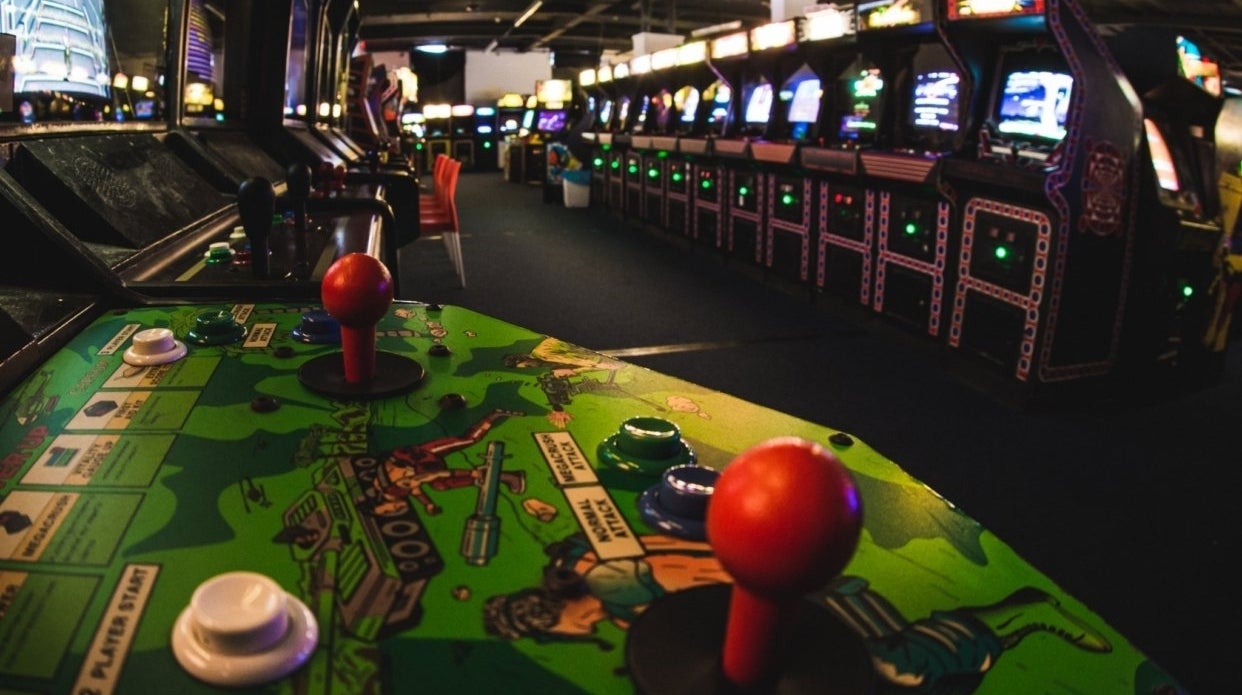Andy Palmer, the man behind Arcade Club, is having the time of his life. He feels like he has been given a second chance, a chance to do something he absolutely loves, day in, day out. “It keeps me alive,” he says of the arcade chain he started in 2015 with its mix of beloved retro machines and cutting-edge games. “It’s actually given me a reason to live again. Because I’m 48 this year, which is tragically near 50, and when you get to your forties and you think you’ve not done as much in your life as you would like to, or you think you should have done, everyone starts getting a bit cynical and a bit down. So this has really given me a shot in the arm in a big, big way.”
Andy previously ran a chain of four computer-repair shops in the Rossendale Valley in Lancashire. But around 2013, business had slowed dramatically, partly because people were ditching their computers for tablets and smartphones. “All you tended to get were people in their 50s, 60s and 70s bringing the same old Vista machines back,” he says. “It just turned into a reinstall of Windows every single day.”
The dwindling business caused Andy to question what he was doing with his life. “You do start to feel like, ‘what’s next?’,” he says. “You’ve only got so many options when you hit your forties.” And that was the point when he hit on the idea of putting some of his beloved arcade machines in the shop for people to play.
Andy has been collecting arcade PCB boards since the early 1990s, when he realised that for the same price as a Mega Drive cartridge, he could buy arcade gems like Strider, R-Type and Ghouls and Ghosts and play them on his TV using the SuperGun converter, “which is basically just RGB and power which [plugs into] the scart socket on your TV,” he says. Later he started collecting the cabinets themselves, and by 2013 his home and the cellars beneath his shops were rammed full of classic arcade and pinball machines.
He experimented at first by shoving 20 cabinets and 10 pinball machines at the back of one of the shops, putting them all on free play, and charging customers £10 for four hours. It proved hugely popular, so a few months later in 2015 he expanded, setting up 100 machines in a large warehouse in Haslingden. “It worked incredibly well,” he says.
